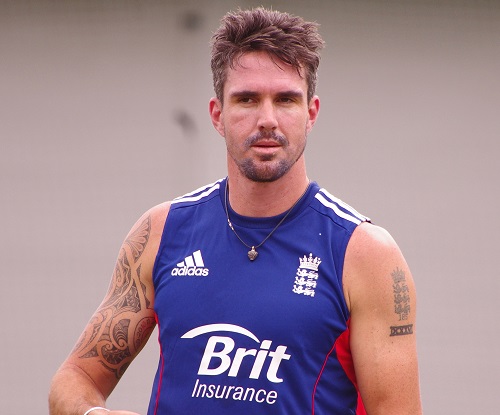The unsettled Kevin Pietersen- Andrew Strauss saga finally finds closure
Cricket, in its more organic sense, is a team sport that brings together talent, strategy and an unparalleled bond between players who constitute a side. But some tales from the beautiful sport defy the true essence of it and takes us to the uglier side of it; like the one England cricket witnessed.

The origination of cricket goes several hundred years back and it was only in the 18th century that England acknowledged as its national sport. Since then, England were involved in the first-ever Test match played and also the birth of the Ashes, in the 19th century, following the hosting of the maiden cricket World Cup in 1975. But for decades, England’s lap remained barren of a World Cup title. The sport witnessed its first-ever T20 World Cup in 2007 and it was finally in the third edition of the ICC tournament, in 2010, that England lifted a Cup this huge. As Paul Collingwood’s T20I side celebrated the glory, the world knew it was because of one man - Kevin Pietersen.
After a glorious 2010, an ICC trophy and the Ashes win, the then managing director of ECB Hugh Morris’ statement "the success of the England team has been built on a unity of purpose and trust" meant Pietersen’s career was at a toss. He was said to prefer being alienated from the team and create a toxic dressing room environment. In return, Pietersen’s dialogue was "it's tough being me in this dressing room" after he crafted a 149 against South Africa in a home Test in 2012. Chaos had already begun before that incident but the real saga involving Andrew Strauss had begun, leading to him getting dropped from the final Test, after Pietersen had admitted to sending "provocative texts" to South African players critical of the then England captain.
That embarked the toxic Kevin Pietersen-Andrew Strauss saga that goes way back and has been stretched so long over the years that it’s finally become a matter of the past. Even though KP made a return to the side, only to get dropped again, for several years and across Strauss’ captaincy and director of ECB role, the saga was stretched and made uglier. Ultimately, ego had the win and Strauss made sure Pietersen never returned after England’s tour of Australia in 2013-14. In return, Pietersen made revelations about the toxicity of the English dressing room and of Alastair Cook having no say.
But the undying hatred has now found a way to perish with Strauss’ words. However, Strauss coming out and speaking rather empathetically about the infamous rigmarole for the first time in nine years is probably the closure that it has been gasping for. A former ECB director, Strauss has now clarified that even though he believed that Pietersen wasn't exactly the team-man but he admitted that England dressing room should have been more accepting.
"I think instead I just let KP be KP. In retrospect that was a mistake and might have sowed the seeds for what was to come down the track. I don't think he would have been in the engine-room of the team in that sense but I've always felt a good team environment embraces difference and finds a space for everyone. I think we did that for large periods of time but possibly through neglect, KP became increasingly isolated," Strauss said on a Sky Sports podcast.
"Often KP wanted to be the guy who was slightly separate from the team. On any given day it didn't feel like an issue but over time it became an issue."
There’s a bit of lamenting in Strauss’ revelation but regret, I’d rather not say. After all, England did win a World Cup at home and without the maverick who was considered to be the best the side had ever seen. The tale of the fallout between Pietersen and the England team, especially Strauss, was based on a series of differences in ideologies- for example, the IPL. Pietersen had demanded that England players be allowed to participate in the biggest T20 league in the world. However, the ECB stood by its orthodox principles of keeping Test cricket over everything. But eventually, both sides were guilty of committing the hypocrisy that was unbeatable.
"I always had sympathy with KP over the IPL. I understood what a big event it was with all the best players playing there together and huge amounts of money on the table as well. But I thought it was incredibly dangerous to allow players to miss Test cricket to play in the IPL. The message you'd be sending and the precedent you'd be setting is that the IPL is more important than Test cricket," Strauss stated, highlighting the massive difference between their ideologies back then. But what England eventually followed was exactly what that they’d criticised Pietersen for.
Pietersen had to pull out of the 2011 World Cup due to hernia and due to ego clashes with the board, he never made it to the 2015 World Cup squad. Another shameful exit from the mega ICC event and England under Strauss implemented whatever it could to be a strong limited-overs side, something that would make them World Champions four years down the line. England’s ODI side had already bid goodbye to Alastair Cook ahead of the 2015 World Cup, and following that James Anderson and Stuart Broad were dropped too. Soon it was new-look English limited-overs side. Strauss gave full responsibility and liberty to captain Eoin Morgan and head coach Trevor Bayliss to turn England into a 50-over force. And they did.
Strange are the uses of fate. Pietersen, whose ideologies were later adopted by the ECB, could’ve been managed better and that part-remorse was also vocalized by Strauss recently. Perhaps, this chapter of England cricket -that’s finally found its way for closure- was always supposed to fall victim to hands of fate.

Comments
Sign up or log in to your account to leave comments and reactions
0 Comments